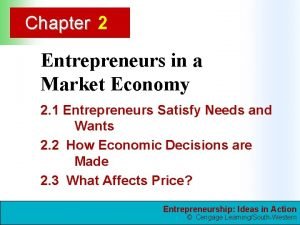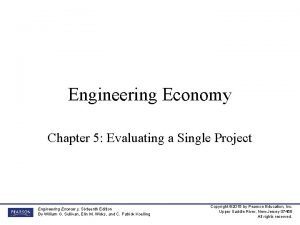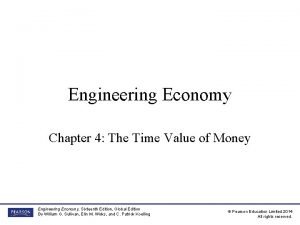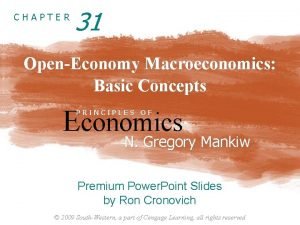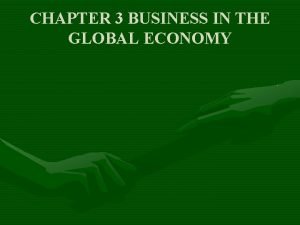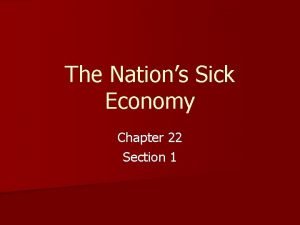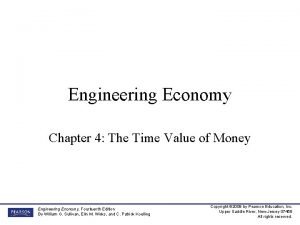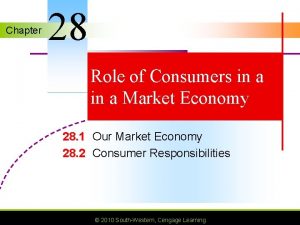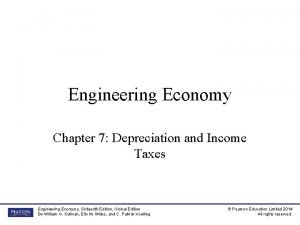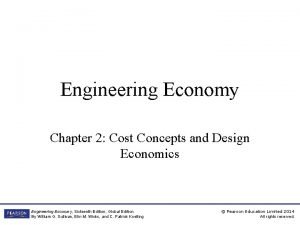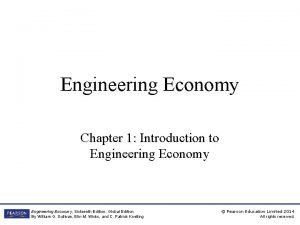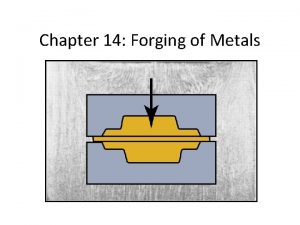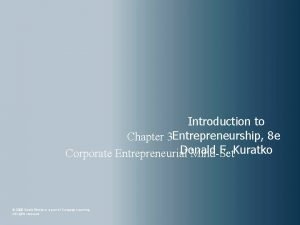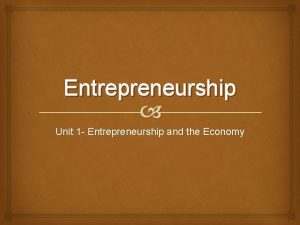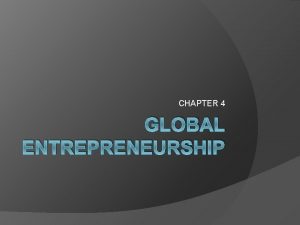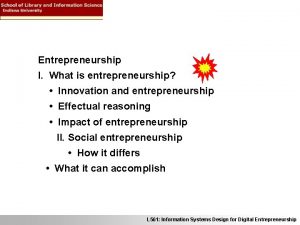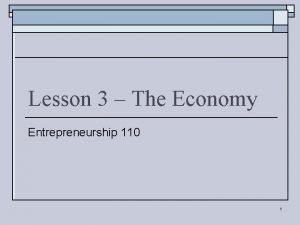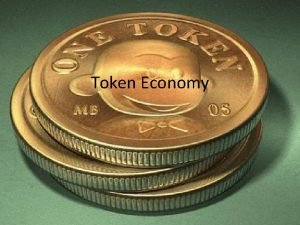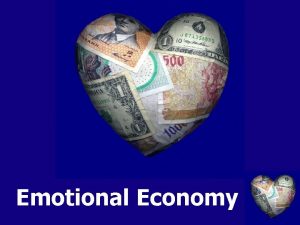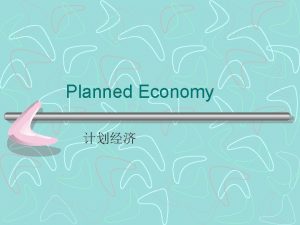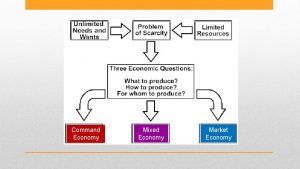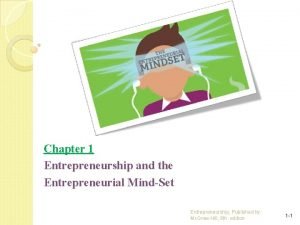Chapter 1 What is Entrepreneurship Entrepreneurship Economy l



















- Slides: 19

Chapter 1 What is Entrepreneurship?

Entrepreneurship & Economy l • Entrepreneur- an individual who takes on the creation, organization, and ownership of a business. Entrepreneurship- the process of recognizing an opportunity for a business venture

Small Business Owners l In U. S. economy 90% of all businesses are small business ventures.

Economic System • What is produced? • How is it produced? • How much is produced? • Who is using the production?

What affects our economy? l Our Laws Institutions l Activities l • Federal Reserve Entrepreneurship Activities (new business growth) War Consumer spending

History of Economic Systems l l Traditional • Bartering and farm trade • Based on supply and demand (little gov’t intervention • • Strong industrial trade (strong gov’t intervention) Ex: _Soviet Union/Cuba • • Combine principles of market and command economics Ex: United States and England (socialist&capitalist) Pure Market System Command Mixed system

Free Enterprise System l l l Capitalistic societies have this type of economic system Gives economic choices to people Other names • Market economy • capitalism

Free Enterprise System con’t l Main Characteristics • Make a profit • Competition between similar businesses • System has a market structure-nature and degree of competition

Economic Indicators l l l Gross National Product Employment Rate Consumer Confidence

Business Cycle l Includes all the ups and downs of the economy for a period of time • Growth and prosperity • Recession • Recovery

What Entrepreneurs Contribute l l l Help to turn demand into supply-recognize wants and seize the opportunities Entrepreneurs supply money to the economyseek venture capital Provide jobs Can change society ex: Apple PC Catalyst for future expansion ex: Bill Gates

Small Business vs Entrepreneurs l l All small businesses can be entrepreneurs Not all entrepreneurs have small businesses

6 Types of Entrepreneurial Business l l Manufacturing- actually produce the products they sell Wholesaling- sell the products to people other than the final customer l Retailing- selling products to people l Service- sell services

6 Types of Entrepreneurial Businesses cont’d l Agricultural- generate fresh produce & other farm products l Mining & extractingtake resources like coal out of the ground so they can be consumed

Small Businesses Employ fewer than 20 people!

Advantages of Entrepreneurship l They are their own boss l They can choose a business that interest them l They can be creative l They can make lots of money

Disadvantages of Entrepreneurship l Entrepreneurship is risky l Entrepreneurs face uncertain an irregular incomes l Entrepreneurs work long hours l Entrepreneurs must make all decisions by themselves

THINK CRITICALLY!! l Entrepreneurs can fail even if they are committed and have the characteristics needed to be successful. Why do you think this can happen? l Why is it important for entrepreneurs to choose a field that they will enjoy? l Do you think the advantages of entrepreneurship outweigh the disadvantages? Why or why not?

The principle goals of most entrepreneurs are to prosper and be innovative
 Athens vs sparta differences
Athens vs sparta differences Entrepreneurs in a market economy
Entrepreneurs in a market economy Introduction to entrepreneurship module
Introduction to entrepreneurship module Engineering economy 16th edition chapter 5 solutions
Engineering economy 16th edition chapter 5 solutions Engineering economy 16th edition chapter 4 solutions
Engineering economy 16th edition chapter 4 solutions Chapter 31 open economy macroeconomics
Chapter 31 open economy macroeconomics Chapter 3 business in the global economy
Chapter 3 business in the global economy Chapter 15 consumers in the global economy
Chapter 15 consumers in the global economy Chapter 22 section 1 the nation's sick economy
Chapter 22 section 1 the nation's sick economy Uniform gradient present worth excel
Uniform gradient present worth excel Chapter 28 role of consumers in a market economy
Chapter 28 role of consumers in a market economy Chapter 4 lesson 1 colonial economy
Chapter 4 lesson 1 colonial economy Engineering economy 16th edition chapter 5 solutions
Engineering economy 16th edition chapter 5 solutions Engineering economy 16th edition solution manual chapter 3
Engineering economy 16th edition solution manual chapter 3 Engineering economy chapter 2 solutions
Engineering economy chapter 2 solutions The interconnected economies of the nations of the world
The interconnected economies of the nations of the world Engineering economy 16th edition chapter 1 solutions
Engineering economy 16th edition chapter 1 solutions Chapter 14 forging the national economy
Chapter 14 forging the national economy Enterpreneurship chapter 3
Enterpreneurship chapter 3 Entrepreneurship chapter
Entrepreneurship chapter

